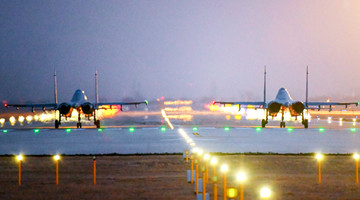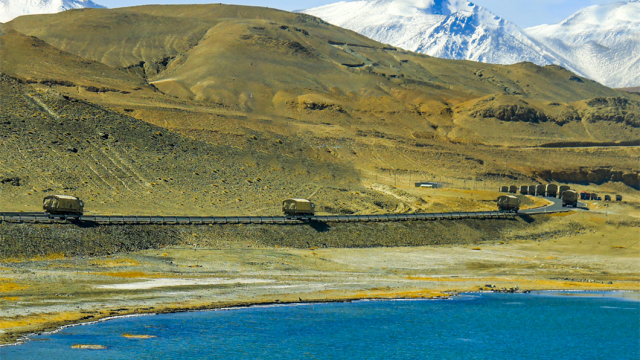By Zhou Bo
If China’s reform and opening-up since 1979 has succeeded in bringing the country to the centre of the global stage, it has also allowed the US to see whether the communist state would become more “like us” in the course of liberalisation.
The results of this experiment have been disappointing from a US point of view. Liberalisation has not changed China as the Americans had hoped.
Jim Mattis, the US defence secretary, used the unveiling in January of a new national defence strategy, following the national security strategy published at the end of 2017, to underline American discontent. “Great power competition — not terrorism,” he said, “is now the primary focus of US national security”.
The new strategy argues that China has become America’s main strategic competitor by “using predatory economics to intimidate its neighbours while militarising features in the South China Sea”.
But the Pentagon fails to explain how, if China is so predatory, it has managed to become the largest trading partner of 130 countries and regions including most of its neighbours and the US, given that trade is generally mutually beneficial. True, China provoked worries by engaging in land reclamation in disputed areas of the South China Sea. But no international law forbids land reclamation, and other countries have also engaged in it.
The US further claims that China seeks to displace American military influence, particularly in the Indo-Pacific region. How can China possibly do that when it has just one overseas post, a logistic supply station in Djibouti, while the US has dozens, if not hundreds, of overseas military bases, including some in China’s neighbours?
By viewing its relationship with China as a competition between great powers, the US is making another, far more consequential, misjudgment following its wars in Iraq and Afghanistan. While economic security is indeed part of national security, an all-out trade war with China will only invite retaliation. And faced with a common threat, China might opt to become closer to Russia.
Besides, maintaining economic dominance is easier said than done. Under President Donald Trump’s predecessor, Barack Obama, the US tried to forge the Trans-Pacific Partnership, a collective effort to check Chinese influence in the region disguised as a trade agreement. But none of the putative members appeared willing to sacrifice their bilateral relationships with China. The pact is yet to come into force.
Today, the world faces two important questions: has the US gone into decline, and can a stronger China make the world a better place?
Although China has no intention to replace Pax Americana with Pax Sinica, the world’s centre of gravity is undoubtedly moving east. According to a Gallup poll in January, China has a higher worldwide approval rating, albeit by a slight margin, than the US. And although Chinese president Xi Jinping skipped the World Economic Forum in Davos this year, its theme of “creating a shared future in a fractured world” very much resonates with what he told the gathering in 2017.
Despite US claims to the contrary, China’s achievements cannot in any way be attributed to American support. Rather, the country’s growing influence stems in large part from its patient handling of the relationship with the US — despite serious incidents such as the Nato bombing of the Chinese embassy in Belgrade in 1999 and the collision in 2001 of Chinese and American aircraft above islands that are part of China’s exclusive economic zone.
For years now, China has been able to manage the uncertainty that tends to surround a new American presidency. And by the end of each administration, relations between the two countries have generally improved.
The question today is how the US will behave towards China, now that Mr Trump sees it as a strategic competitor. One American media outlet described the national security strategy as “dead on arrival”. But if this is a serious policy document, the whiff of a new cold war, it may well prove to be a watershed in America’s irreversible decline.
The writer is an honorary fellow at the PLA Academy of Military Science in China









